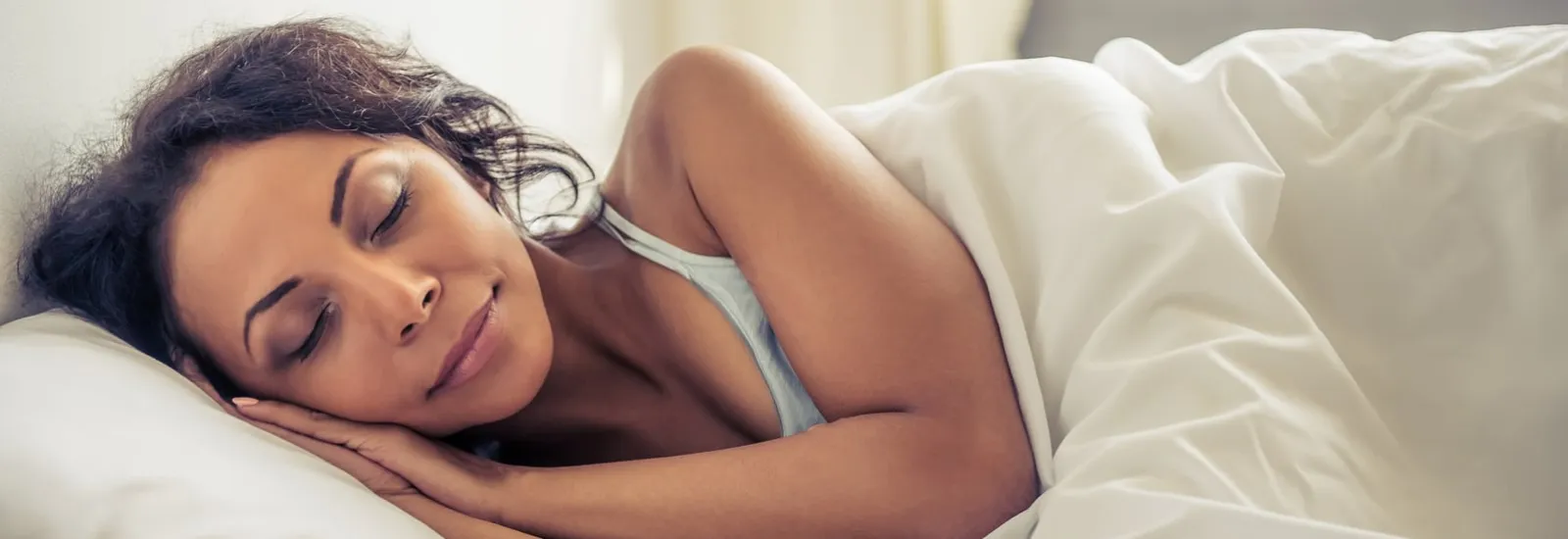
Setting the stage for a good night’s sleep
We all want a good night’s sleep but sometimes that can be an elusive goal. Many things from diet to daily stress can make it difficult. According to the Centers for Disease Control and Prevention (CDC) one in three Americans do not get enough sleep and a lack of quality sleep can leave you tired and cranky. But more than that having a sleep deficit can lead to a host of health risks.
Dangers of sleep deprivation
The basis of much of your health happiness and success begins with a good night’s sleep. Getting enough sleep is essential for your body to function properly. When you regularly miss hours of sleep you are at a higher risk of developing diseases like diabetes high blood pressure and heart disease. Lack of sleep can put you and others at risk on the road as well. According to the National Institutes of Health (NIH) each year over 100000 automobile accidents and 15000 deaths are caused by drivers who are sleep deprived.
Doctors recommend adults get between six and nine hours of sleep each night. One of the easiest ways to help ensure you get enough sleep is to create a bedroom that helps you fall and stay asleep. Here are seven tips for setting the stage for a good night’s sleep.
1. Banish screens from your bedroom 
The blue light emitted from screens – like your phone computer and TV can disrupt your circadian rhythm and prevent you from falling asleep on time. Researchers found that exposure to blue light before bed can increase the amount of time it takes you to fall asleep by up to three hours!
2. Lower the temperature
Keeping the temperature cooler in your bedroom can help your body transition to sleep mode. According to researchers 65 degrees is the optimal temperature for a good night’s sleep. Lower the thermostat when you go to bed turn on ceiling fans and avoid excessive covers and clothing.
3. Keep it quiet
A quiet room with less opportunity for sound to bounce around is better for maintaining sleep. Too many hard surfaces can cause sound to reverberate in your bedroom. Consider adding rugs to hard floor surfaces. Try a white noise machine if you live near a busy road or other sources of nighttime noises. One study found that creating a quiet sleep environment could increase the amount of deep sleep you get by more than 30 minutes a night.
4. Choose comfortable bedding
Choose bedding that is breathable since this helps your body temperature remain constant as you sleep. Natural fiber fabrics like cotton or silk are a good choice. If allergies are a concern choose hypoallergenic covers to help avoid allergy symptoms as you sleep.
5. Keep your bedroom dark all night
Light interrupts your brain’s sleep signals. Close your curtains or blinds to block any light from streetlights passing cars or even a bright moon. Remove night lights and consider removing your bedside clock. If you absolutely must have a clock choose one with no light or with red light and turn the clock away from your face as you sleep. Even a small amount of light can stimulate your brain and reduce the amount of good sleep you get.
6. Clean your room
A clean room helps you relax. Try to keep your bedroom free from distractions and reminders of the stress in your life. Keep work mail and outside distractions in another room. A clean room and bed also help remove dust pet hair and other particles that can lead to nighttime sneezing breathing difficulties and headaches.
7. Try aromatherapy
Aromatherapy may seem like a new and trendy idea but for centuries people have used scents to create a positive mood and a relaxing setting. A recent review of studies about aromatherapy and sleep found that it was an effective way to improve sleep quality. There are many scents that may help you get a good night’s sleep but aromatherapists recommend lavender to improve your sleep.
Getting a good night’s sleep is essential for optimal health and adequate sleep can decrease your risk of developing serious diseases like diabetes and hypertension.
If you have trouble falling or staying asleep contact Reid Health Sleep Disorders Center for a sleep diagnostic study. You may have a medical condition like sleep apnea that may be preventing you from getting the sleep you need. Reid Health can help find the treatment you need to get back to sleeping well again.

